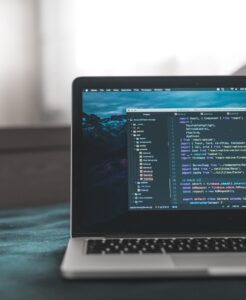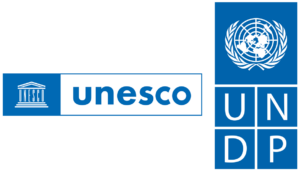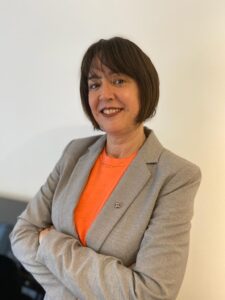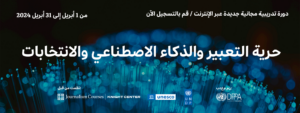
On Demand
$0.00
Information and elections in the digital era
This self-directed course features course content from the Knight Center for Journalism in the Americas‘ n partnership with the UNESCO Section for Freedom of Expression and the Safety of Journalists and with the support of the UNDP Policy and Program Support Office, massive open online course (MOOC) titled ‘Information and Elections in the Digital Age’. The five-week course took place from September 19th to October 23rd, 2022
While the digital era has presented opportunities for enhancing freedom of expression, social media also poses new challenges. The spread of disinformation and misinformation online, intimidation and harassment (particularly against women), hate speech, and micro-targeting can undermine electoral and governance processes. During this five-week massive open online course students will explore the diverse malpractices, strategies and techniques, which electoral stakeholders face online.
This course will provide examples of multi-stakeholders’ responses by civil society organizations, journalists, electoral management bodies, media regulatory authorities and electoral stakeholders to contribute to a transparent and inclusive online ecosystem.
Speakers will include: Alphonce Shiundu, Africa Check; Andrew Puddephatt, Internet Watch Foundation; Benoît Loutrel, Regulatory Authority for Audiovisual and Digital Communication (Autorité de régulation de la communication audiovisuelle et numérique; ARCOM); Glen Mashini, Chairperson of the Electoral Commission (IEC) of South Africa; Guilherme Canela, Chief of UNESCO’s Section on Freedom of Expression and Safety of Journalists; Patricia Campos Mello, journalist; Roselyn Akombe, Head of Governance and Peacebuilding in Africa for UNDP; Lorenzo Córdova Vianello and Karla Garduno, National Electoral Institute (INE) Mexico; Vusumuzi Sifile, Panos South Africa; Ghassen Selmi, Media and Digital Transformation Specialist at UNDP Regional Hub for the Arab States.
Six practitioners and experts from UNDP will introduce speakers’ input: Dan Malinovic, Focal point for Elections; Niamh Hanafin, Senior Adviser Information Integrity, Osama Aljaber, Digital Democracy Specialist, Sare Knoope and Ajay Patel respectively Programme Manager and Lead expert SELECT Project; Tatiana Monney, Electoral Adviser.

Goals
The MOOC aims at exploring the diverse malpractices, strategies and technics, which electoral stakeholders face online as well as the examples of multi-stakeholders’ responses to contribute to a transparent and inclusive online ecosystem.
Objectives
Upon completion of this course, you will be able to:
- Better understand how the new digital era, including internet, social media, and artificial intelligence affect electoral processes;
- Identify how key elements of electoral processes (such as human rights, freedom of expression, press freedom, right to privacy, right to political participation, etc.) apply in the digital era;
- Understand the difference and dynamics between disinformation, misinformation, malinformation and hate speech in the context of electoral processes;
- Recognize the main strategies and techniques used to spread disinformation and the targets within the electoral cycle;
- And be familiar with multi-stakeholder responses and lessons-learned on how to contribute to a transparent and inclusive online ecosystem.
Module 1 – The new information paradigm and elections
Elections constitute a pivotal moment in democracies and provide citizens with an opportunity to choose their political representatives who will make critical decisions on the present and future of a given country. While the digital era has initially brought great opportunities for voters and candidates, social media poses new challenges for freedom of expression, safety of citizens, candidates and journalists as well as for the access to information. This module will provide you with a thorough overview of the new information paradigm and its impact on democratic elections when information sharing throughout the electoral cycle move online.
Module 2 – Disinformation, misinformation, and hate speech
In this module you will learn the differences between disinformation, misinformation and malinformation and why we no longer use the term “fake news.” We will also analyze the human drivers behind misleading content and how hate speech impacts the electoral and governance processes. We will discuss electoral-related violence, in particular against women and journalists.
Module 3 – The impact of online harmful practices on the electoral cycle & an overview of responses and tools to tackle them
In this module we will review the diverse strategies and techniques used to spread dis-, mis- and malinformation. We will talk about the main targets of disinformation within the electoral cycle, and about the different responses to tackle disinformation – based on good practices and lessons learned on various continent, and in using tools such as artificial intelligence.
Module 4 – Focus on preventive measures to tackle harmful practices
In this module we will start examining some of the preventive measures available to electoral stakeholders to tackle disinformation, misinformation and malinformation during electoral processes in relation to the electoral cycle: such as capacity building; promotion of dialogue and social cohesion; public information campaigns; and media information literacy. It will also cover emerging regulatory attempts to prevent harmful content from spreading online during elections.
Module 5 – Multi-stakeholder engagement and corrective measures to contribute to a transparent and inclusive online ecosystem
In this module we will continue addressing the different ways to tackle harmful practices during elections through a multi-stakeholder engagement for the identification, fact-checking and monitoring measures; corrective measures; or containing corrective measures and regulatory and non-regulatory measures. Such measures help contribute to a transparent and inclusive online ecosystem.
 Albertina Piterbarg is an Electoral Expert and journalist working at UNESCO Freedom of Expression and Security of Journalists section. She has more than 20 years of experience working in the areas of communications, elections and women’s political participation in the Organization of the American States (OAS), UN Peacekeeping Operations, UNDP, UN Women and most recently, UNESCO ranging from head of office, team leader, field officer, government advisor, independent consultant, and certified BRIDGE trainer. She has participated in several missions in Niger, Ivory Coast, Tunisia, Libya, East-Timor, New Caledonia, Mexico, Bolivia, Colombia, Ecuador, Dominican Republic and Venezuela among others. She studied Philosophy and Literature in the University of Buenos Aires in Argentina and a master’s in Journalism in Saint Andrews University of Argentina, where she was bestowed with the Outstanding University Graduate award 2018.
Albertina Piterbarg is an Electoral Expert and journalist working at UNESCO Freedom of Expression and Security of Journalists section. She has more than 20 years of experience working in the areas of communications, elections and women’s political participation in the Organization of the American States (OAS), UN Peacekeeping Operations, UNDP, UN Women and most recently, UNESCO ranging from head of office, team leader, field officer, government advisor, independent consultant, and certified BRIDGE trainer. She has participated in several missions in Niger, Ivory Coast, Tunisia, Libya, East-Timor, New Caledonia, Mexico, Bolivia, Colombia, Ecuador, Dominican Republic and Venezuela among others. She studied Philosophy and Literature in the University of Buenos Aires in Argentina and a master’s in Journalism in Saint Andrews University of Argentina, where she was bestowed with the Outstanding University Graduate award 2018.
Instructors
Albertina Piterbarg

Knight Center for Journalism in the Americas
300 West Dean Keeton
Room 3.212
Austin, TX, 78712
Phone: 512-471-1391
Email: journalismcourses@austin.utexas.edu



